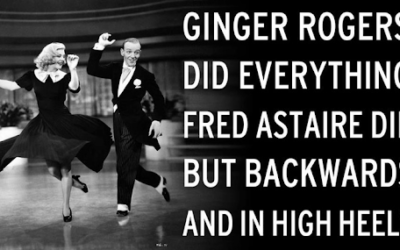This is a great time for women. Women all over the world are running countries, companies and universities. The most recent U.S. Secretary of State and Speaker of the House were women. Women make up about half of the workforce and can now fight side-by-side with their male counterparts in the military. But, given all of these advancements, are women happier? According to a 2009 study entitled “The Paradox of Declining Female Happiness,” the answer is a resounding no.
In light of International Women’s Day, I wanted to re-visit these findings and check in with all of you about women, happiness and all that has been achieved since 1972, the first year the United States General Social Survey (GSS) began asking men and women, “How happy are you?”
The study reported several findings:
1. Women in the United States have become less happy, both absolutely and relative to men;
2. The decline in women’s happiness is a trend seen across groups — both working and stay-at-home moms, for those married and divorced, the young and old, and across the education spectrum; and
3. These same trends appeared across industrialized countries for which there are sufficient happiness data.
What’s driving these results? he study poses several questions. Do women now feel more comfortable being honest about their real happiness levels? Has an increase in opportunity created a commensurate increase in what is required for women to declare, “I’m happy?” Have the changes created as a result of the women’s movement actually decreased women’s happiness?
Or, are women setting themselves up for happiness failure by buying into certain myths of happiness — “I’ll be happy when…”
- I’ll be happy when I get married or find that perfect relationship.=
- I’ll be happy when I make more money.
- I’ll be happy when I have kids.
- I’ll be happy when I lose weight.
- I’ll be happy when I change jobs/get a new job/get promoted.
Society spins a very seductive story for women, making it seem as though they’re not worthy unless they’ve achieved these milestones.
But there’s more to this story. Despite the data shown in this study and despite how hard women tend to be on themselves, women are harnessing their strengths to do incredible things. According to research by Dr. Susan Nolen-Hoeksema, women’s strengths fall into four distinct categories. These categories also coincide with specific strategies that have been shown to actually increase a person’s happiness and resilience:
Mental Strengths: Women are adept at finding solutions to problems. Happy people are FAT thinkers — flexible, accurate and thorough. They focus their time and energy on where they have control; they understand that the bad stuff in life won’t last forever; and they don’t let adversity in one area of life spill over into other areas.
Identity Strengths: Identity strengths allow women to maintain a strong sense of self and values. Working toward meaningful life goals is one of the most important strategies happy people utilize. Happy people have values that they care about and outcomes that are worth working for. In addition, self-efficacy is an important component of resilience.
Emotional Strengths: Women have the keen ability to understand their own feelings and those of others, and they become skilled at seeing the good that might come from challenging times. Empathy is also a significant component of resilience.
Relational Strengths: Women are able to connect with other people and build a strong support system. Happy people stay connected to their families, neighbors and communities. Highly resilient people are skilled at developing and maintaining relationships and leveraging those relationships during stressful life events.
While it appears as though women’s happiness levels have been on the decline for decades, women also possess very specific strengths that, when leveraged, promote not only happiness, but also resilience.
What do you think? Do you think that women’s happiness levels are still on the decline? If yes, what do you think is driving the decline? If no, what strategies do you use to maintain your resilience and happiness?
Paula Davis-Laack, is an internationally published writer and travels the globe as a stress and resilience expert. She has helped train nearly a thousand professionals on how to manage their stress by building a set of specific skills designed to increase personal resilience. Paula will soon launch a new online magazine to provide busy professionals with the latest tools, tips and information about how to manage stress and build strong, happy, and healthy lives.
Connect with Paula on Twitter at www.twitter.com/pauladavislaack or via email at paula@marieelizabethcompany.com.
Guide to Women in Leadership
Organizations with women in their executive suites regularly out-perform others. Yet rising female executives (and their mentors) are frustrated at how hard it is to break through the glass ceiling. In this extensive guide, Executive Coach Dana Theus shares her tried and true strategies to help women excel into higher levels of leadership and achieve their executive potential.






